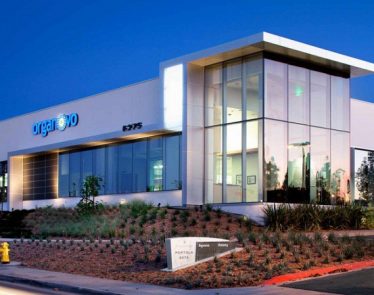
Few industries have been churning out major returns on investment with as much regularity as the healthcare sector. It’s a massively broad industry with thousands of companies to choose from, all with their own potential to take off at any time, given the huge amount of factors that affect the industry. Important to note when investing in this sector is that healthcare stocks are greatly affected by clinical-trial data, and surprises about the outcomes of those trials can affect the stock price tremendously.
Just look at Axsome Therapeutics (NASDAQ:AXSM) for a recent example. AXSM stock rocketed over 3,600% last year alone after publishing hugely promising results for its AXS-05 drug, a treatment for major depressive disorder (MDD). Around 16 million Americans experience MDD annually, and initial treatment with existing therapies is ineffective for around two-thirds of sufferers.
Axsome was undervalued with a market cap of US$85 million before those results were released, which is a commonality among pre-trial healthcare stocks, but the publishing of the trial brought the firm’s market cap up to over US$3 billion. That’s an incredible leap forward in just a few short months based off of one hugely successful trial, but Axsome isn’t the only healthcare stock with vast undiscovered potential. Let’s take a look at three more that could follow a similar trajectory in 2020.
Adaptimmune Therapeutics (NASDAQ:ADAP)
Adaptimmune is a clinical-stage biopharmaceutical company focused on the development of novel cancer immunotherapy products for cancer patients. This healthcare stock has already gained over 230% in 2020 alone for two reasons. Firstly, the company recently solidified its long-term financial position with a much-needed capital injection to ensure the continued development of its flagship T-cell therapy.
Secondly, Adaptimmune inked a lucrative partnership with the Japanese pharmaceutical giant Astellas (OTCPK:ALPMF) to co-develop new stem-cell-derived allogeneic T-cell therapies for cancer patients. There is already a growing potential for these affinity-enhanced T-cell treatments in a relatively nascent field of anti-cancer cell therapy. A major catalyst for this healthcare stock could come from the next clinical update for its synovial sarcoma treatment ADP-A2M4, which the company is confident of commercializing by 2022.
>> GRPN Stock Tanks as Q4 Earnings Fall Short, Announces Overhaul
Novavax Inc (NASDAQ:NVAX)
Novavax is a Maryland-based vaccine manufacturer that has seen double-digit gains in recent weeks off the back of a particularly deadly flu season, leading the FDA to grant fast-track designation for its new flu vaccine. So far, this flu season has seen a spike in cases, with over 9.7 million reported illnesses and 170 million vaccine doses administered in the US. The FDA has clearly reacted to this increase by fast-tracking NanoFlu, which it sees as “an innovative improvement compared to traditional egg-based vaccines.”
As is always the case with healthcare stocks like this, there is some risk attached. The company has a poor track record when it comes to late-stage trials after its ResVax trial failed twice, which is a factor in its current valuation being just a tiny fraction of NanoFlu’s commercial opportunity right now. While the market may have little confidence in Novavax’s ability to deliver on the promise of NanoFlu, you can judge for yourself when the vaccine’s pivotal stage results are published by the end of the first quarter.
Puma Biotechnology (NASDAQ:PBYI)
Probably the most speculative healthcare stock on this list, Puma is a former big hitter that was trading at around $270.00 in 2014 but is now valued at just $13.29. It is worth noting, however, that the sharp drop off in Puma stock is mostly as a result of a former executive at the firm being charged with insider trading after making US$1.2 million from twice buying and selling the stock based on his knowledge of unpublished clinical trial results.
Puma has been on the comeback trail in 2020, with shares up nearly 40% on growing optimism regarding the commercial prospects of its hotly debated breast cancer treatment Nerlynx. This treatment has been proven effective in preventing the return of breast cancer after treatment by the FDA, but the trials were marked with high discontinuation rates among patients due to Nerlynx’s tendency to produce severe bouts of diarrhea.
This issue is being addressed, and Puma has seen some encouraging results in trying to co-prescribe a novel combo of antidiarrheal medications alongside Nerlynx. So, the risk with this healthcare stock is clear, but so is the massive upside of what is potentially a blockbuster $1 billion-plus revenue drug. Puma stock’s current price of $13.29 could be hugely undervalued should the firm develop a sustainable amendment to Nerlynx.
Featured image: DepositPhotos © nikesidoroff












